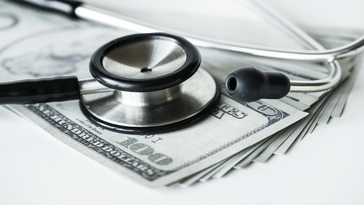Health loans are becoming an increasingly popular solution for those facing unexpected medical costs. Whether you’re dealing with an emergency or a planned procedure, these loans help make healthcare more accessible without the financial strain.
In South Africa, where healthcare costs can be a significant burden, these loans provide a way to access necessary treatments without delay. They offer a practical approach to managing medical expenses, ensuring you don’t have to compromise on your health.
Curious about how they work and if they’re right for you? Keep reading to discover the benefits and options available for managing your healthcare finances.
What Are Health Loans?
Health loans are specialized financial products designed to help individuals cover medical expenses. These loans can be used for various purposes, including paying for hospital bills, surgery costs, prescription medication, or even cosmetic procedures.
Unlike traditional loans, health loans are tailored specifically for healthcare-related needs, making them more accessible for those seeking to manage unexpected medical expenses.
In South Africa, many financial institutions offer these types of loans, allowing individuals to borrow a set amount of money to cover medical costs. These loans typically come with favorable terms, such as lower interest rates or extended repayment periods, making them more affordable than other loan options.
Why Are Health Loans Important in South Africa?
South Africa’s healthcare system is a mix of public and private services, with significant disparities between the two. Public healthcare, while available, often suffers from overcrowding, long wait times, and limited resources. On the other hand, private healthcare is more efficient but can be prohibitively expensive for many South Africans.
In this context, health loans provide a critical financial solution. They enable individuals to access private healthcare services when they can’t afford the high upfront costs. Whether it’s for an emergency medical situation or planned surgery, health loans bridge the gap, ensuring timely access to necessary treatments without the financial strain.
Types of Health Loans Available
There are several types of health loans available in South Africa, each catering to different needs:
1. Personal Health Loans
Personal health loans are the most common type of loan used for medical purposes. These loans are typically unsecured, meaning they don’t require collateral. They can be used for various healthcare expenses, from doctor consultations to surgical procedures. Personal health loans are ideal for individuals who need immediate access to funds but don’t have the assets to secure a traditional loan.
2. Medical Credit Cards
Another form of health loan is a medical credit card. This product allows individuals to borrow money for medical expenses up to a certain limit. It works similarly to a regular credit card but can only be used for healthcare-related purchases. Medical credit cards offer the flexibility of revolving credit, allowing you to pay off the loan in installments.
3. Health Financing through Medical Schemes
Some medical schemes in South Africa offer financing options that function similarly to health loans. These schemes allow members to finance medical procedures or treatments not covered by their regular health plan. This can be an attractive option for individuals who already have medical insurance but need extra financial assistance for specific treatments or services.
Benefits of Health Loans
1. Access to Immediate Healthcare
One of the primary benefits of health loans is that they provide quick access to necessary medical treatments. When faced with a health crisis, waiting for approval from insurance or saving up funds may not be an option. Health loans allow individuals to seek treatment without delay, ensuring that they don’t have to postpone essential care.
2. Flexible Repayment Terms
Unlike traditional loans, health loans often come with flexible repayment plans. Lenders may offer extended repayment periods, making it easier for individuals to manage their finances while paying off medical debt. Depending on the loan provider, individuals may be able to choose monthly installments that align with their income.
3. No Collateral Required
Most health loans in South Africa are unsecured, meaning you don’t need to offer collateral to obtain the loan. This feature makes health loans an attractive option for individuals who don’t own property or other valuable assets.
4. Financial Peace of Mind
By taking out a health loan, individuals can reduce the stress of worrying about how to pay for healthcare expenses. Instead of dipping into savings or relying on friends and family, a health loan can provide a structured approach to managing medical costs, offering financial peace of mind.
How to Qualify for a Health Loan
Qualifying for a health loan in South Africa generally depends on a few key factors:
1. Creditworthiness
Like any other loan, health loans are subject to credit checks. Lenders will typically assess your credit score and financial history to determine your eligibility. A good credit score increases the likelihood of approval and may also result in better interest rates.
2. Income Verification
Lenders also require proof of income to ensure that you can repay the loan. This may involve providing recent pay slips, bank statements, or proof of employment. Your income will help determine the loan amount you qualify for and the repayment terms.
3. Medical Necessity
In some cases, lenders may ask for proof of medical necessity for the health loan. This can include a doctor’s note or a statement from a healthcare provider confirming that the loan is required for a legitimate medical purpose.
The Cost of Health Loans
Before applying for a health loan, it’s important to understand the costs involved. Interest rates on health loans in South Africa vary depending on the lender, loan amount, and repayment terms. Typically, medical loans come with lower interest rates than personal loans, but they may still be higher than loans with collateral.
Additionally, it’s important to consider any fees associated with the loan. Some lenders charge administrative or processing fees, which can add to the total cost of the loan. Always read the terms and conditions carefully to avoid surprises.
Alternatives to Health Loans
While health loans can be helpful, they’re not the only option for covering medical expenses. Here are a few alternatives:
1. Medical Aid
Medical aid schemes in South Africa provide individuals with comprehensive coverage for various medical services. Some medical aids offer additional coverage for surgery, hospital stays, and specialist consultations. Depending on your medical needs, a medical aid plan might be a more cost-effective solution in the long run.
2. Health Insurance
Health insurance is another alternative to health loans. Some health insurance policies cover a broad range of medical expenses, including hospitalization, outpatient care, and medications. Like medical aid, insurance can help reduce the financial burden of medical treatments.
3. Crowdfunding
For significant medical expenses, some South Africans turn to crowdfunding platforms to raise money for their treatments. While this option may not be suitable for everyone, it has become a popular way to seek financial support from the community.
Conclusion
Health loans are a practical financial tool that can help South Africans manage the rising costs of healthcare. They provide access to immediate treatment, offer flexible repayment terms, and can be obtained without collateral.
However, it’s essential to carefully consider the costs, eligibility criteria, and alternatives before applying for a health loan. By understanding your options, you can make an informed decision and take a proactive approach to your health and financial wellbeing.





